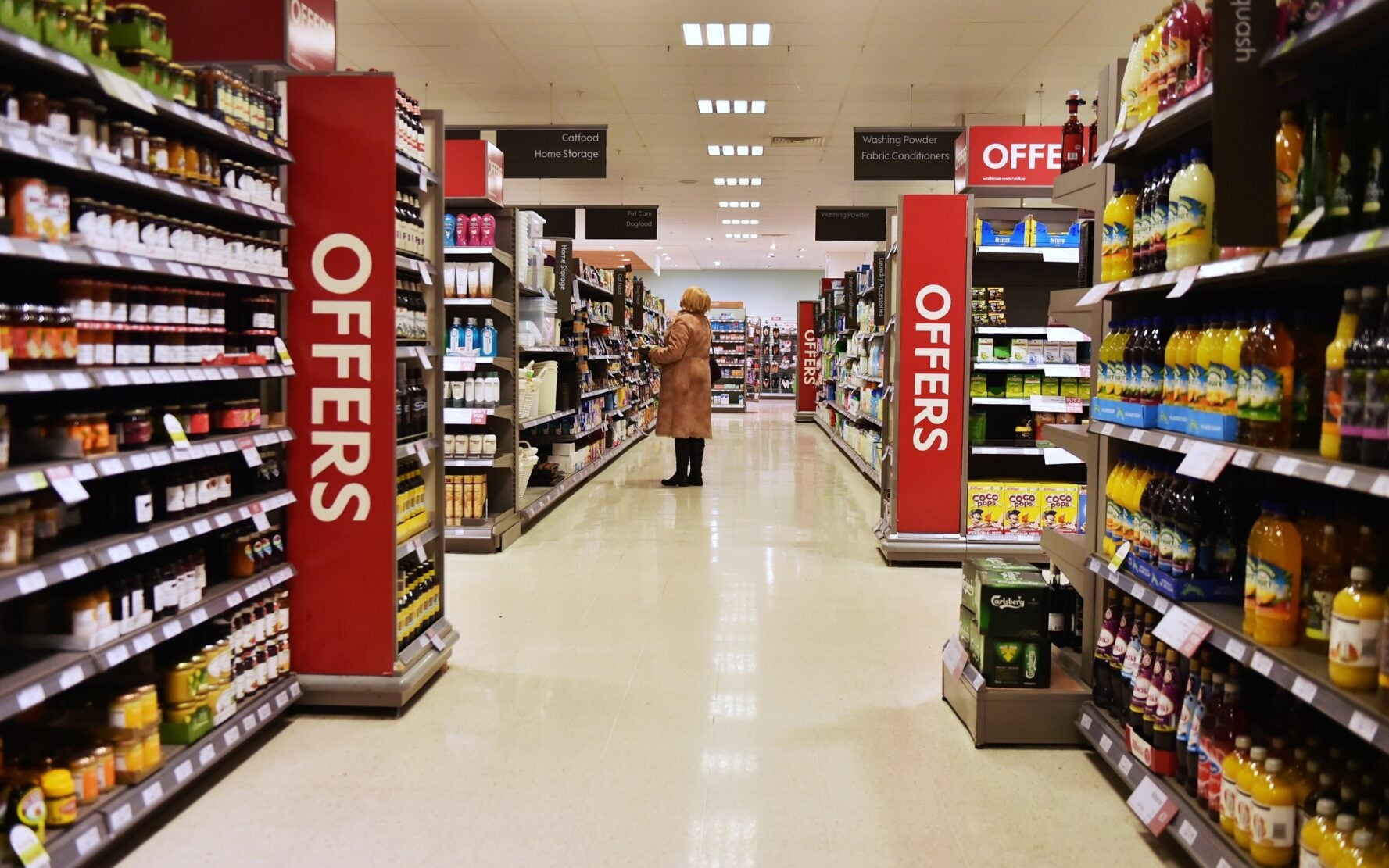
Data from the British Retail Consortium (BRC) has revealed that UK food inflation reached an unprecedented high in December.
Overall food inflation accelerated to 13.3% from 12.4% in November, marking the highest inflation rate in the food category on record.

Discover B2B Marketing That Performs
Combine business intelligence and editorial excellence to reach engaged professionals across 36 leading media platforms.
Fresh food inflation hit 15.0% in December, up from 14.3% in November, another milestone. Ambient food inflation recorded its fastest rate of increase last month, accelerating to 11.0% from 10.0% in November.
Helen Dickinson, chief executive of the BRC, blamed macro issues affecting the supply chain for the inflation hike.
“The prices of many essential foods rose as reverberations from the war in Ukraine continued to keep high the cost of animal feed, fertiliser and energy,” she said.
The BRC price data was collected between 1 December and 7 December.

US Tariffs are shifting - will you react or anticipate?
Don’t let policy changes catch you off guard. Stay proactive with real-time data and expert analysis.
By GlobalDataMeanwhile, market research company Kantar has revealed that take-home grocery sales increased by 7.6% in the 12 weeks to 25 December.
Year-on-year growth in December was even higher at 9.4%, the fastest rate recorded since February 2021.
Fuelled by inflation, the value of sales reached a new record high of GBP12.8bn (US$15.4bn) for the four-week period ended on Christmas Day.
Kantar said “traditional, major” grocers Tesco, Sainsbury’s, Asda and Morrisons accounted for more than two thirds of all spending over the festive season.
Fraser McKevitt, head of retail and consumer insight at Kantar, said: “Monthly grocery sales were a whopping GBP1.1bn higher in December versus last year, breaching the GBP12bn mark for the first time. Value sales are up significantly but grocery price inflation is the real driving factor behind this rather than increased purchasing. If we look at the amount people bought this period, sales measured by volume are actually down by 1% year-on-year, showing the challenges shoppers are facing.”
Consumers continued to ‘trade down’ to supermarkets’ own-label products during this period, with sales rising by 13.3%, well ahead of a 4.7% increase in branded lines.
McKevitt added: “The British supermarket sector is more competitive than ever and the grocers are keen to retain customers by offering their own festive alternatives. This has included an emphasis on premium own-label products, giving consumers a way to treat themselves this Christmas.
“These lines always do well at this time of year and this festive period was no exception, with sales growing by 10.2% to hit more than GBP700m for the first time. Tesco’s Finest range remains the single largest premium own-label line by some distance, while Aldi and Lidl were the biggest contributors to the premium own-label sector’s overall growth in 2022.”
The online grocery sector also remained in growth with sales up 4% year-on-year in value terms. However, there was a slight decline in online’s total share compared to Christmas 2021, nudging down by 0.6 percentage points to 11.6%.
Aldi remained the fastest-growing grocer with 27.0% growth, taking its market share up from 7.7% this time last year to 9.1%.
Kantar’s data is based on its monitoring of the take-home grocery purchasing habits of 30,000 households across Great Britain. Retailer growth figures relate to overall take-home sales.





